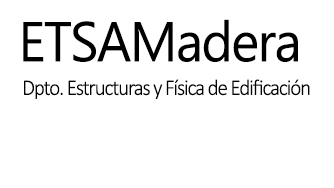
Abstract
The fracture toughness of thermally modified beech (Fagus sylvatica L) and ash (Fraxinus excelsior L) wood under Mode I loading was quantified using Compact Tension (CT) specimens, loaded under steady-state crack propagation conditions. The influence of three heat-treatment levels and three moisture contents, as well as two crack propagation systems (RL and TL) was studied. Complete load–displacement records were analysed, and the initial slope, k init, critical stress intensity factor, K Ic, and specific fracture energy, G f, evaluated. In the case of both species, thermal modification was found to be significantly affect the material behaviour; the more severe the thermal treatment, the lower the values of K Ic and G f, with less difference being observed between the most severe treatments. Moisture content was also found to influence fracture toughness, but had a much less significant effect than the heat treatment.
https://doi.org/10.1007/s00226-010-0389-4
